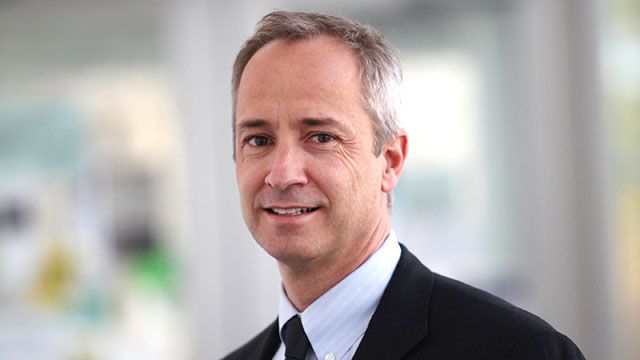
On February 21, Christopher Watson was appointed Northwestern’s dean of undergraduate enrollment and associate vice president for student outreach by Provost Jonathan Holloway. When he officially takes office on April 16, Watson will be replacing Michael Mills, who has served as Northwestern’s associate provost for university enrollment for 14 years. As dean of enrollment, Watson will be in charge of recruiting, evaluating and yielding applicants for admission, as well as overseeing Northwestern’s financial aid program.
Watson, currently the dean of undergraduate admissions, will continue to serve on President Morton Schapiro’s senior staff, reporting directly to Jake Julia, Northwestern’s vice provost for administration. Unlike in his previous position, the entire enrollment division of Northwestern will now report to Watson. Julia said he is looking forward to working with Watson, who, according to Julia, on top of doing great work for Northwestern undergraduate admissions, has a great sense of humor and is very enjoyable to work with.
“I think he has a really strategic perspective on undergraduate admissions,” Julia said. “I’m looking forward to thinking with him about how to meet Northwestern’s goals for enrollment.”
Before coming to Northwestern, Watson served as an associate director of international admissions at Boston University. He then went on to work Princeton University for seven years as the director of admission and associate dean.
Under Watson’s leadership, Northwestern admissions has seen many improvements, including an increase from 25,013 to 40,577 first-year applications annually, with a specific increase in transfer and international applications. While Watson played a crucial role in altering these numbers, the growth is also part of a national trend of increasing university applicants, which The Washington Post said could be due to the relative ease of today’s college application process.
Watson was also involved in coordinating the shift to the new undergraduate admissions visitor center in 2014 – the Segal Visitors Center now hosts more than 65,000 visitors each year. In this way and others, Watson has shown that for him, accessibility is always a top concern when it comes to enrollment.
“I think it is important that students and families both in the states and globally know we are accessible to them,” Watson said. “That makes you a leader in education around the world.”
Watson also said in a press release about his new position that he always prioritizes diversity in his work. His emphasis on the diversification of the student body can be seen through an increase in international, Black and Latinx first-year students – with international students now making up 10 percent and Latinx and Black students making up more than 22 percent of the first-year class.
“The most important thing we have accomplished is to increase diversity among the students at Northwestern in all the ways it is measured,” Watson said in the press release. “I am especially gratified we have been able to increase the number of Pell-eligible students to 20 percent in the class of 2022, admitted last fall – which is a full two years ahead of President Schapiro’s goal of reaching 20 percent by 2020.”
Julia credited Watson with improving the university’s reputation and academic qualifications of its students. Despite the drastic increase in first-year applicants, the university’s acceptance rate dropped from 27 to 8 percent under Watson’s leadership.
“I think we’ve seen quite a transformation of the student body in incredible ways, by increasing access to students who traditionally haven’t thought about Northwestern,” Watson said.
Throughout his time with Northwestern, Watson established partnerships with many community-based organizations, such as QuestBridge and Posse, to improve Northwestern’s ability to represent students of a lower socioeconomic status. Watson has also tripled the number of students enrolled in the university from Chicago Public Schools.
“I think one of the benefits of a world class education is having multiple perspectives and people coming in with complex and different viewpoints,” Julia said. “I think our ability to do that on multiple elements of diversity really makes us a better university.”